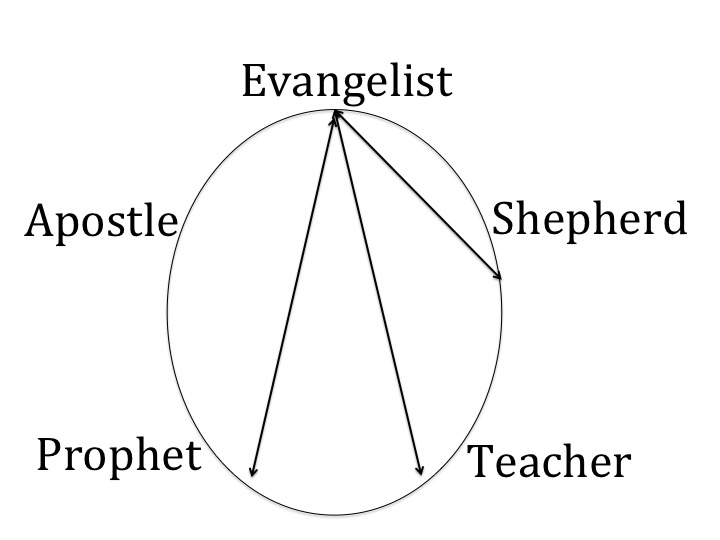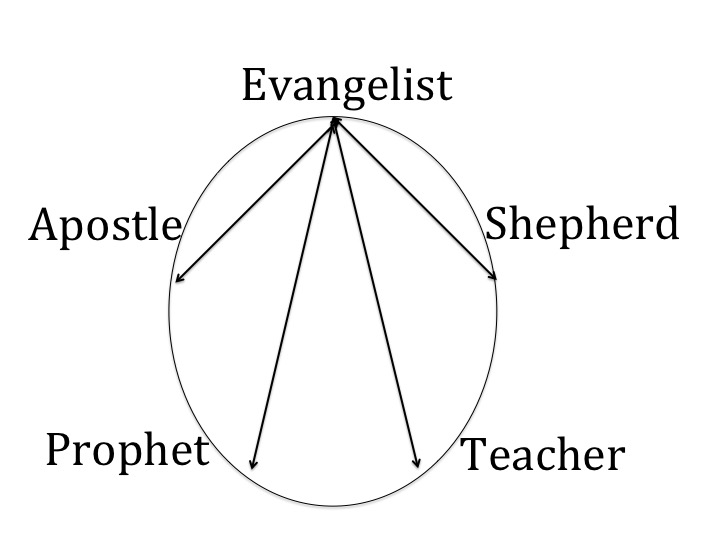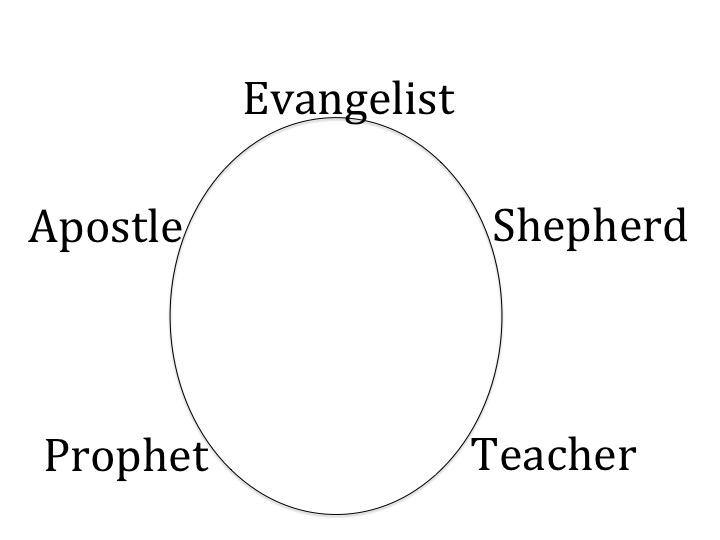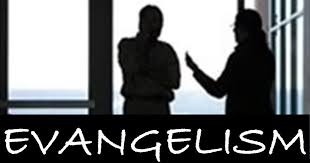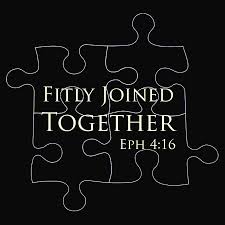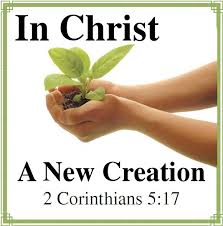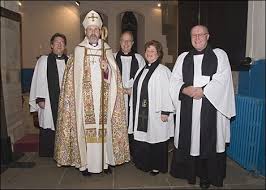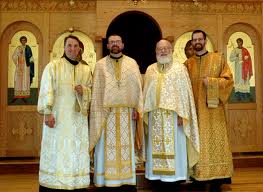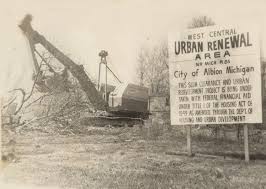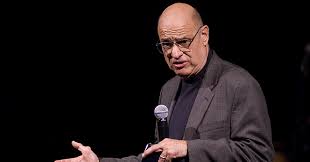 Why Should/Shouldn’t My Church Embrace Change? Part XIV
Why Should/Shouldn’t My Church Embrace Change? Part XIV
To understand the five fold, please read the entire passage of Ephesians 4:1-16.
The first three verses emphasize Christian character, which Paul qualifies as walking in “humility, in gentleness, with patience, showing tolerance for one another in love, and preserving the unity of the Spirit in the bond of peace”. Unfortunately, Christian attitudes are often judgmental rather than gentile, patient, and tolerant.
The next three verses Paul clarifies “preserving the unity of the Spirit in the bond of peace” as being “one Spirit, just as also you were called in one hope of your calling; one Lord, one faith, one baptism, one God and Father of all who is over all and through all and in all.” “Unity” and “oneness” is central to every believer and their trust in the Holy Spirit.
 In verses 12 through 16 Paul explains “Christ’s gift” of “grace” by recounting how Jesus “descended into the lower parts of the earth” conquering sin and death, then “ascending on high”, taking with Him “a host of captives,” those previous saints who had waiting for their Savior while in the Bosom of Abraham. He not only raised the dead, but “He (also) gave gifts to men. He who descended is Himself also He who ascended far above all the heavens, so that He might fill all things.”
In verses 12 through 16 Paul explains “Christ’s gift” of “grace” by recounting how Jesus “descended into the lower parts of the earth” conquering sin and death, then “ascending on high”, taking with Him “a host of captives,” those previous saints who had waiting for their Savior while in the Bosom of Abraham. He not only raised the dead, but “He (also) gave gifts to men. He who descended is Himself also He who ascended far above all the heavens, so that He might fill all things.”
What were these gifts? “ He gave some as apostles, and some as prophets, and some as evangelists, and some as pastors and teachers.” I believe these gifts are believers who want to win the lost, to see rebirth, who want to shepherd the sheep, to nurture and care for them, who want the Logos Word, the written Word to become the Rhema Word, the living word, who want to not only draw near to God by hearing his voice, feeling his heartbeat, and being obedient to that voice, and who want to see His Bride as a whole entity, a living organism, the Church! His gifts to us, the body of Christ, are the passions, desires, and points of view of an apostle, prophet, evangelist, pastors (shepherds), and teachers that can indwell any believer in Jesus Christ.
Why? “For the equipping of the saints for the work of service, to the building up of the body of Christ; until we all attain to the unity of the faith, and of the knowledge of the Son of God, to a mature man, to the measure of the stature which belongs to the fullness of Christ.” Jesus did not leave his believers on earth as orphans, but promised the gift of the Holy Spirit to guide and teach them. He also did not abandoned his believers but gave them gifts, the tools, to “equip” them for the purpose “of service” to “build up of the body of Christ,” to “attain unity in faith,” to “attain of the knowledge of the Son of God,” and “to mature man to the fullness of Christ.”
 What are the results if the Church accepts these gifts? “We are no longer to be children, tossed here and there by waves and carried about by every wind of doctrine, by the trickery of men, by craftiness in deceitful scheming.” Each of the thousands of different Christians sects have their “wind of doctrine” that defines their uniqueness. Each believes they have the elite truth of correct Biblical theology, and all others are in some kind of error. If one looks at the wide scope of Christian theology proposed by the hundreds of Christian colleges, universities, and seminaries just in the United States, one would be “tossed here and there by waves and carried about by every wind of doctrine.”
What are the results if the Church accepts these gifts? “We are no longer to be children, tossed here and there by waves and carried about by every wind of doctrine, by the trickery of men, by craftiness in deceitful scheming.” Each of the thousands of different Christians sects have their “wind of doctrine” that defines their uniqueness. Each believes they have the elite truth of correct Biblical theology, and all others are in some kind of error. If one looks at the wide scope of Christian theology proposed by the hundreds of Christian colleges, universities, and seminaries just in the United States, one would be “tossed here and there by waves and carried about by every wind of doctrine.”
We are to “speak the truth in love,” but with all this diverse theology, what is that truth? The first century Church had the Apostle’s Teaching, a simple gospel, a simple message of what they “have seen and heard”. They taught Jesus! They also warned of wolves in sheep’s clothes would come “by the trickery of men, by craftiness in deceitful scheming” and distort that truth. If there ever was a time the Church needs the “Apostle’s Teaching” it is today.
 Paul admonishes us Christians in our faith to “no longer be children, tossed here and there,” but “to grow up in all aspects into Him who is the head, even Christ.” CHURCH, it is time “to grow up”! To grow up, the church needs to embrace a spiritual metamorphosis, a transformation from structure back to relationships by which the Church was originally birthed! It needs to return to being a living organism.
Paul admonishes us Christians in our faith to “no longer be children, tossed here and there,” but “to grow up in all aspects into Him who is the head, even Christ.” CHURCH, it is time “to grow up”! To grow up, the church needs to embrace a spiritual metamorphosis, a transformation from structure back to relationships by which the Church was originally birthed! It needs to return to being a living organism.
One of the purposes of the five fold is to bring UNITY to the Body of Christ. The Church, “the whole body,” can “be fit and held together by what every joint supplies, according to the proper working of each individual part, which causes the growth of the body for the building up of itself in love.” What are those joints? They could be the Five Fold giftings, passions, desires, and points of view that are available for every believer.
There, in sixteen verses, Paul introduces and outlines five gifts, five passions that Jesus gave the Church upon his ascension into heaven to equip his Bride for His return to her! All the Church needs to be effective and united are in those five giftings and passions.
 Why Should/Shouldn’t My Church Embrace Change? Part XXVII
Why Should/Shouldn’t My Church Embrace Change? Part XXVII Shepherd/Teacher: The shepherd and teacher can work hand in hand because their focus is on “maturing” the saint into the image of being a godly, Christ-like person. This faith journey must be grounded in the Logos Word, the Bible, yet lived out in practical everyday life as a living Rhema Word. Who better to walk out this new life with a shepherd than a teacher? Since “all things are new” when being born again, a teacher is necessary to instill Biblical principals as a foundation. A convert who has a shepherd on one side and a teacher on the other walking with him is a fortunate person. The five fold can offer that!
Shepherd/Teacher: The shepherd and teacher can work hand in hand because their focus is on “maturing” the saint into the image of being a godly, Christ-like person. This faith journey must be grounded in the Logos Word, the Bible, yet lived out in practical everyday life as a living Rhema Word. Who better to walk out this new life with a shepherd than a teacher? Since “all things are new” when being born again, a teacher is necessary to instill Biblical principals as a foundation. A convert who has a shepherd on one side and a teacher on the other walking with him is a fortunate person. The five fold can offer that! Shepherd/Prophet: When facing the challenges of everyday life, one can lose focus and be distracted. The shepherd works daily with a a new convert’s spiritual walk, but the prophet keeps one’s focus on God, his Son, Jesus, and through the Holy Spirit. The shepherd teaches one to walk with God; the prophet teaches one to hear from God through the voice of the Holy Spirit. The more righteous the walk, the more obedience to the voice is required, the more mature a Christian becomes into the image of Jesus. The shepherd and prophet need one another in their own practical daily walks and spiritual journeys.
Shepherd/Prophet: When facing the challenges of everyday life, one can lose focus and be distracted. The shepherd works daily with a a new convert’s spiritual walk, but the prophet keeps one’s focus on God, his Son, Jesus, and through the Holy Spirit. The shepherd teaches one to walk with God; the prophet teaches one to hear from God through the voice of the Holy Spirit. The more righteous the walk, the more obedience to the voice is required, the more mature a Christian becomes into the image of Jesus. The shepherd and prophet need one another in their own practical daily walks and spiritual journeys. Shepherd/Apostle: Even with all the nurturing that you have received, did you ever ask how you “fit” into the picture of your local church or the Church as a whole? As the shepherd works with your development toward becoming a “mature” believer in Jesus, the apostle specializes in networking the pieces together, seeing over what the Holy Spirit is doing in each believer’s personal life and the life of the Church as a whole. As the convert grows, the apostle “sees over” the walk he had with his shepherd and networks him with other teachers and prophets. The apostle doesn’t control the sheep nor tells the shepherd what to do, but he “serves” them to assure the growth of the sheep and the spiritual health of the shepherd.
Shepherd/Apostle: Even with all the nurturing that you have received, did you ever ask how you “fit” into the picture of your local church or the Church as a whole? As the shepherd works with your development toward becoming a “mature” believer in Jesus, the apostle specializes in networking the pieces together, seeing over what the Holy Spirit is doing in each believer’s personal life and the life of the Church as a whole. As the convert grows, the apostle “sees over” the walk he had with his shepherd and networks him with other teachers and prophets. The apostle doesn’t control the sheep nor tells the shepherd what to do, but he “serves” them to assure the growth of the sheep and the spiritual health of the shepherd.


